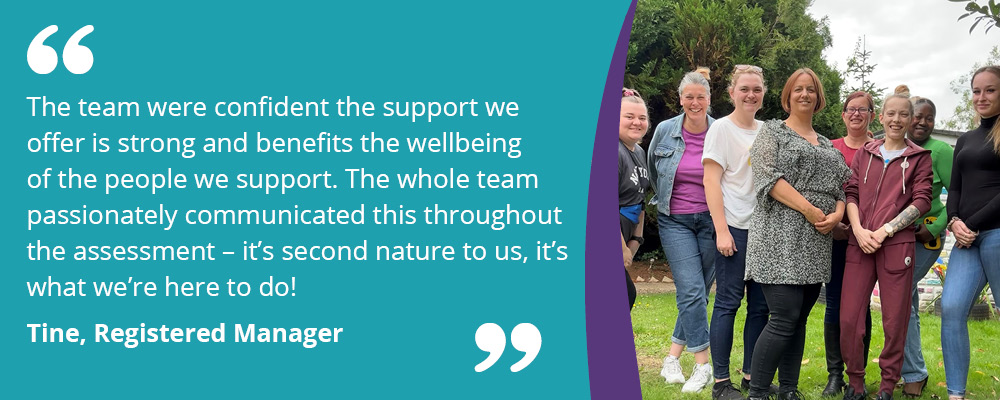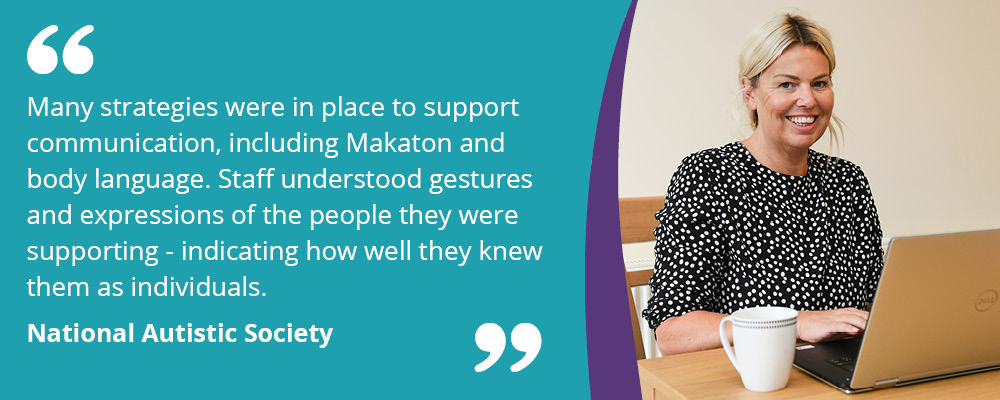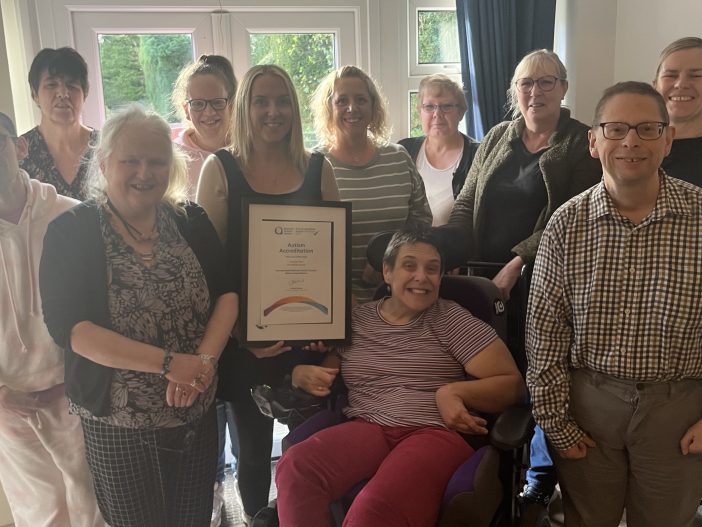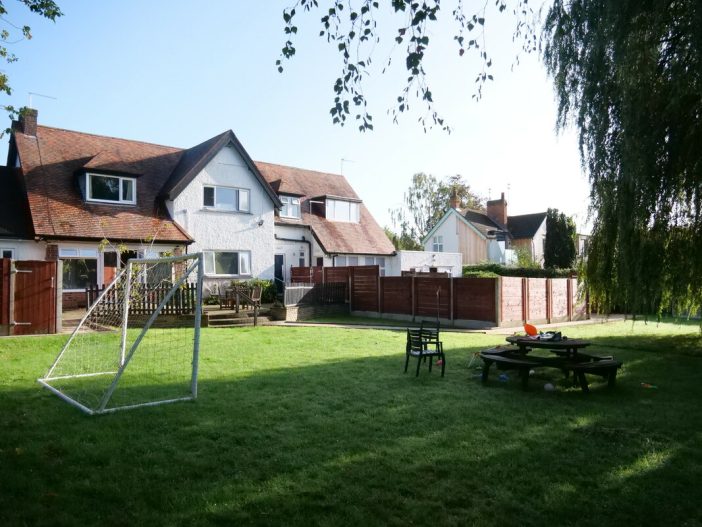Achieving National Autistic Society accreditations with specialist support at Sir Evelyn Road!
Committed to continuous learning and development, Sir Evelyn Road are the latest recipients of a National Autistic Society (NAS) Accreditation taking our accredited services total to 25*!
Sir Evelyn Road is one of our residential support services based in Kent. As a specialist autism service, the team use their expertise to empower people with autism to live incredible lives!
Reflecting the team’s commitment and hard work, this achievement is recognised as a mark of excellence throughout the social care sector.
We caught up with Registered Manager Tine, to find out what this achievement means for Sir Evelyn Road and the people we support and how they reached this important milestone!
(*Data correct as of May 2023)
What did your journey to achieving a National Autistic Society accreditation involve?
We were initially assessed in 2019 and achieved a group accreditation along with two other services. But for this assessment, we were evaluated independently and now have an independent accreditation!
To prepare for the assessment, we reflected on what we’d implemented, changed, and achieved for the people we support over the past few years. This helped us realise just how well we work as a team and how that has contributed to the amazing outcomes of the people we support.
We also submitted written case studies to the assessor, which provided a summary of what activities each person gets involved with and the benefits they bring. Whether it’s supporting the development of daily living skills, improving general wellbeing, or enhancing social skills, each activity is important and the case studies evidence this.
On assessment day, a number of people we support and their support workers were observed by the assessor. Many of the people we support have autism and are non-communicative, so weren’t able to understand exactly what was happening during the assessment.
We prepared them as much as possible beforehand, but we experienced some challenges on the day. This didn’t faze us though, as we wanted our assessment to represent real-life. The challenges we encountered evidenced how well we know the people we support and demonstrated how we handle these situations safely and effectively.
The team were confident the support we offer is strong and truly benefits the wellbeing and development of the people we support. The whole team passionately communicated this throughout the assessment – it’s second nature to us, it’s what we’re here to do!
How does achieving an independent National Autistic Society accreditation benefit the service and the people in it?
It marks an achievement that is based purely on what we’re doing at Sir Evelyn Road. We were proud to be part of the group of services that achieved the initial accreditation, but this is exclusive to our team and takes a deeper look at exactly how we’re supporting people.
It focuses on the people we support at Sir Evelyn Road and their achievements over the past few years.
Having our own accreditation gives us extra reassurance that we’re doing the right things for the people we support and ensures we can continue to develop our support in the right way.

Have you made any changes for the people we support since your last National Autistic Society accreditation?
Since our first assessment in 2019, it’s been embedded in us to look at things from the perspective of the people we support. Using empathy is a powerful way to understand someone’s needs. Everyone we support is unique and their autism means they have different experiences.
Everyday activities, such as going shopping, is a unique encounter for each person. We look at how we can approach activities in a way that suits individual needs and preferences. For example, if someone’s noise avert, we assess the best times to support them to do their shopping and avoid busy periods. And if the environment for their activity changes, we think about how we can adapt our support to accommodate any additional needs.
We also moved our sensory room downstairs, and this made a big difference to everyone’s wellbeing! It used to be upstairs but wasn’t accessed very often. It was out of the way and had to stay locked because we couldn’t monitor people using it.
Now it’s downstairs, it’s easier to oversee and we can leave it open for individuals to access at their leisure. It’s also added an element of self-regulation for them. We’re always on hand for support but now they can access the room independently and truly tune into their own needs.
Many of the people we support can’t communicate easily so we introduced regular ‘person-centred reviews’. These reviews involve the whole team and ensure individual needs and goals are up to date and communicated with the whole team. This way, every staff member can support each person in a way that’s beneficial to them.

What tips would you give to other services looking to apply for their National Autistic Society accreditation?
It’s important to look at what you currently have in place for the people you support and how you can further improve on this.
Consider things from their perspective – what do they need to support their interactions with the world around them? How can you support them to effectively communicate their needs and wishes?
Empowering the people we support to express their concerns is also important. Listen to their feedback and use this to adapt your support. Our Voyage Care autism lead, Raj, is approachable and passionate about helping the people we support succeed – make use of his experience and knowledge!
What’s next for Sir Evelyn Road and the people we support?
We’re excited to start implementing the recommendations from the assessor! Advanced status is our next goal, and we have things we need to achieve to ensure we get to that next level. Keeping up to date with NAS news and training is an important part of working towards Advanced, as well as being open to new ideas for developing the support we deliver and achieving the best possible outcomes for the people we support.
Find out more
To learn more about our specialist autism support and how we can support you, a loved one or a client, complete our quick and easy form, and a member of our team will be in touch.

 Quality & sector
Quality & sector 

